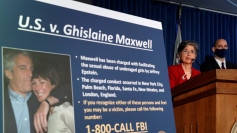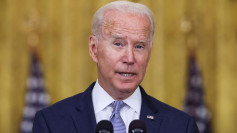Donald Trump's bold move to target Mexican cartels as terrorist organizations has sparked concerns from experts, who warn of violent retaliation against American tourists in Mexico's iconic vacation destinations and border communities.
Authorities warn that President Trump's first executive order could inadvertently incite violence against American tourists in Mexico.
Not long after taking the oath of office, the president signed an executive order officially designating Mexican cartels as terrorist organizations on par with al-Qaida and the Islamic State. In response, the Pentagon sent 1,500 active-duty troops to the border. However, according to experts, Trump could face serious consequences if he decides to send special forces into the neighboring country, as reported by The Guardian.
A senior fellow at the Small Wars Journal-El Centro and a former Los Angeles police officer, John P. Sullivan, has warned that the continual discussion of a unilateral American military intervention in Mexico is harmful.
Because of their well-established networks, well-armed Mexican cartels may react against U.S. military operations by targeting American tourists in popular vacation locations like Cancún or by committing acts of violence in border towns.
Airstrikes and raids are certainly within the realm of possibility, according to Lucas Webber, a senior threat intelligence analyst at Tech Against Terrorism and a research fellow at the Soufan Center. Webber went on to say that cartels may retaliate by targeting unsuspecting individuals, like tourists or diplomatic targets in Mexico, or even the troops that the Trump administration is sending to the shared border, or even networks within the United States.
Similar to previous missions against al-Qaida and the Islamic State, the operations Trump has outlined involve the use of elite units like Seal Team 6 and airstrikes conducted by the U.S. Special Operations Command (Socom) to target foreign operatives. These missions cost billions of dollars and resulted in civilian deaths that were so common that they drove the rise of Isis.
Targeting cartel leadership in "kingpin" operations, according to Sullivan, is politically appealing but operationally risky.
In his analysis, Sullivan noted that when cartel bosses are removed, a leadership vacuum often develops. This, in turn, leads to groups within the cartel competing for control, which in turn escalates the level of violence and instability.
There has been a history of attacks on Mexican judges, public officials, journalists, and law enforcement by cartels; nevertheless, Sullivan does not currently perceive a threat to American citizens visiting or working in Mexico.
"It is clear that Mexican cartels have a history of using terrorist tactics as symbolic and instrumental tools of asserting power and influencing state actions in a form of violent lobbying," Sullivan stated. "Such actions directed against American tourists are rare."






